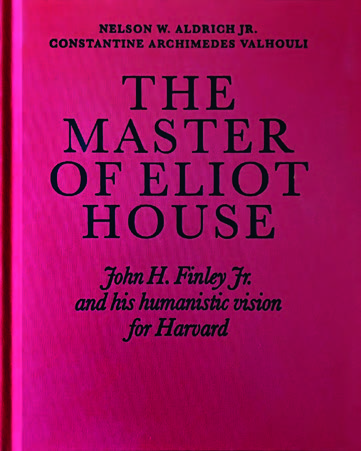Exonians in Review: Fall 2024

The latest publications, recordings and films by Exeter alumni and faculty.
Numbers and the World: Essays on Math and Beyond
David Mumford ’53
The American Mathematical Society, 2023
The Tavern of Awakening: Poems for Meditation
Fred LaMotte ’66
Saint Julian Press, 2024
Willful Wanderer: A Memoir
Nelson Graves ’72
Self-published, 2024
Playing Games at CNN: How a Softball Team Captured the Spirit of a News Network
Jim Barnett ’75
5editorial, 2024
El museo como Templo (y otros disparates)
Lorena Casas Pessino ’87
Editorial La Huerta Grande, S.L., 2024
“Does the Stigma Around Substance Use in Jewish Populations Impact Access to Treatment: A Scoping Review”
Hilary Krosney Rediker ’88
Journal of Substance Use and Addiction Treatment, 2024
Slapshot Sisters: The Comeback, Book 2
Slapshot Sisters: Tough as Nails, Book 3
Dan Pasternack ’00
Self-published, 2024
Tiling billards on triangle tilings, and interval exchange transformations
Diana Davis ’03,
Instructor in Mathematics with Paul Baird-Smith, Elijah Fromm and Sumun Iyer; Journal of the London Mathematical Society, January 2024
“The Thirty-Two Fouettes,” short story
Dwight Curtis ’06
The Wrath-Bearing Tree, September 2024

Professor and Public Intellectual: A biography of John H. Finley ’21
New Hampshire native John H. Finley, Exeter class of 1921, became one of the defining figures of Harvard in the 20th century, both as a charismatic professor and a public intellectual. Named master of Eliot House at Harvard in 1942, Finley saw the dormitories (gifted by Edward Harkness) as an extension of learning beyond the classroom, and carefully selected residents with this in mind — Exonian writers Donald Hall ’47 and George Plimpton ’44 were among them.
During World War II, Finley was the force behind the Committee on General Education, with the goal of creating a shared national narrative to connect Americans to each other, and to inoculate them against the rise of authoritarianism. Humanities students needed scientific exposure, the committee determined, while “technologists” needed a humanistic and moral grounding.
This article was originally published in the Fall 2024 issue of The Exeter Bulletin.